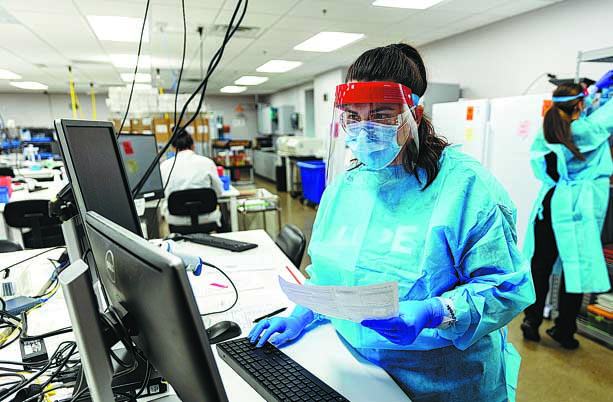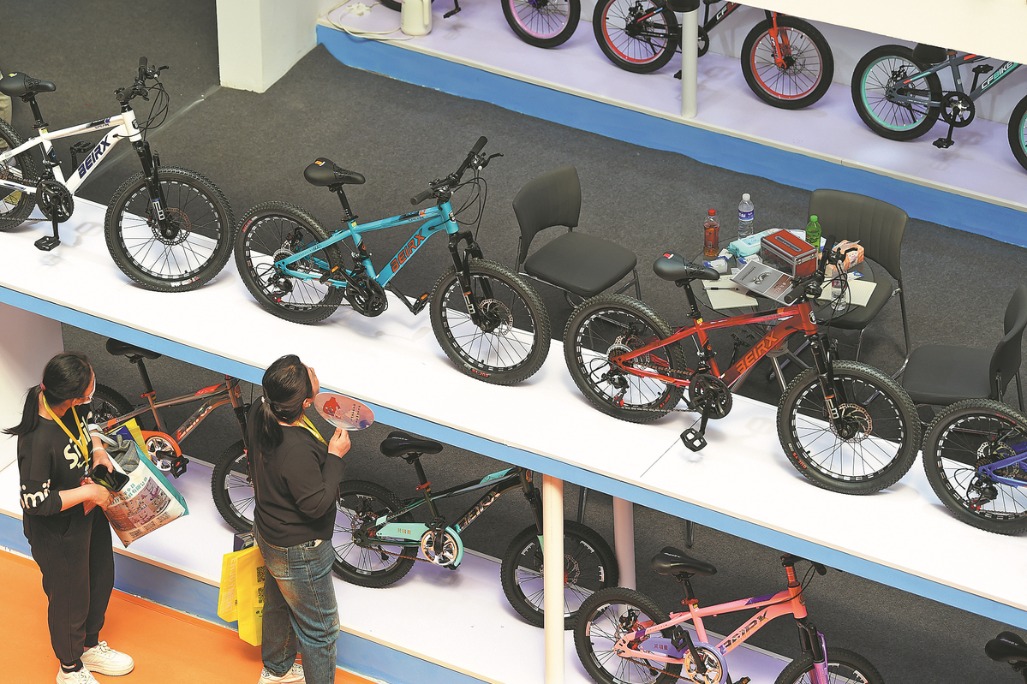Lessons to learn look more like failures repeated


Lack of testing
The problems with monkeypox testing were reminiscent of the early days of the COVID-19 pandemic. The CDC developed its own test for the coronavirus that turned out to be faulty. This lack of testing let the coronavirus spread further, data shows.
Monica Gandhi, a professor of medicine at the University of California, San Francisco, told China Daily that "the problems with our testing platforms and unified messaging" hurt the response to COVID-19.
Today, several commercial laboratory chains are producing tests for monkeypox, but the initial delay in the CDC-affiliated tests may have contributed to its spread.
Another misstep by the CDC on monkeypox was made on medication, say doctors.
The medication tecovirimat is highly effective against smallpox and monkeypox. But, at the start of the outbreak, the CDC required doctors to go through a long-winded application process for each patient to get the drug. This further slowed down the distribution of the medication.
Hot spots for monkeypox, according to CDC data, include New York with 2,744 confirmed cases; California, 2,663; Georgia, 1,066; Florida, 1,372; and Texas, 1,079.
Officials in New York, the epicenter of the monkeypox outbreak, said the initial response was slow due to a lack of tests.
In July, Governor Kathy Hochul announced that the New York City Department of Health and Mental Hygiene had approved Quest Diagnostics to test for monkeypox in New York.
The city then sped up appointments offering the first dose of the vaccine to people at high risk. But it warned that appointments for the second dose would be delayed, until it had more supply. It should be given 28 days after the first dose. Many gay men got vaccinated.
San Francisco and Washington, DC, are following New York's plan. The vaccine is also being "stretched" to allow for more shots.
In a groundbreaking admission, Rochelle Walensky, director of the CDC, delivered a scathing assessment of her agency's response to the country's biggest public health emergency.
"To be frank, we are responsible for some pretty dramatic, pretty public mistakes, from testing to data to communications," Walensky said of the agency's response to COVID-19. "This is our watershed moment. We must pivot." She made the comments in a video on Aug 17 to the CDC's 11,000 employees.
Since the beginning of the outbreak, local health departments in all states have not had enough monkeypox vaccines to meet demand.
US health officials currently need to vaccinate 1.6 million people at high risk from the virus. In July, the White House announced tens of thousands of vaccine doses would soon be distributed.
In mid-August, the White House further announced a deal to expedite 2.5 million vials of monkeypox vaccine from Bavarian Nordic to the US by moving production to a company based in Michigan. The first doses will be ready at the end of the year.
"This partnership will significantly increase the capacity to fill and finish government-owned doses for the first time in the United States," White House monkeypox coordinator Bob Fenton said in a statement.
An additional 1.8 million doses will be available for order on Monday.
Global emergency
Monkeypox was declared a global public health emergency on July 23 by the World Health Organization. The US followed with an emergency declaration on Aug 4.
However, US clinics that care for LGBTQ people still get calls daily from patients who want to get vaccinated.
Demetre Daskalakis, White House national monkeypox response deputy coordinator, said on Friday that a new vaccination program is targeting people attending LGBTQ events.
The CDC plans to ramp up investigations into how the virus is transmitted, help doctors identify cases and strengthen contact tracing nationwide. It will also share key information with Nigeria and other African countries where outbreaks are common.
During the COVID-19 pandemic, Trump admitted to journalist Bob Woodward that he "played down" the severity of the coronavirus.
Following an initial review of her agency, Walensky vowed on Aug 12 that the CDC will be more transparent when communicating information to people and local health authorities.
She said the CDC had lost the trust of the public and must work to win it back.
Dowdy will be among those watching the agency's progress. "I think we need to wait and see what actual changes the CDC implements," he said.
"I think that improving messaging is an important first step, but I think that the CDC will be considering other changes as well."























